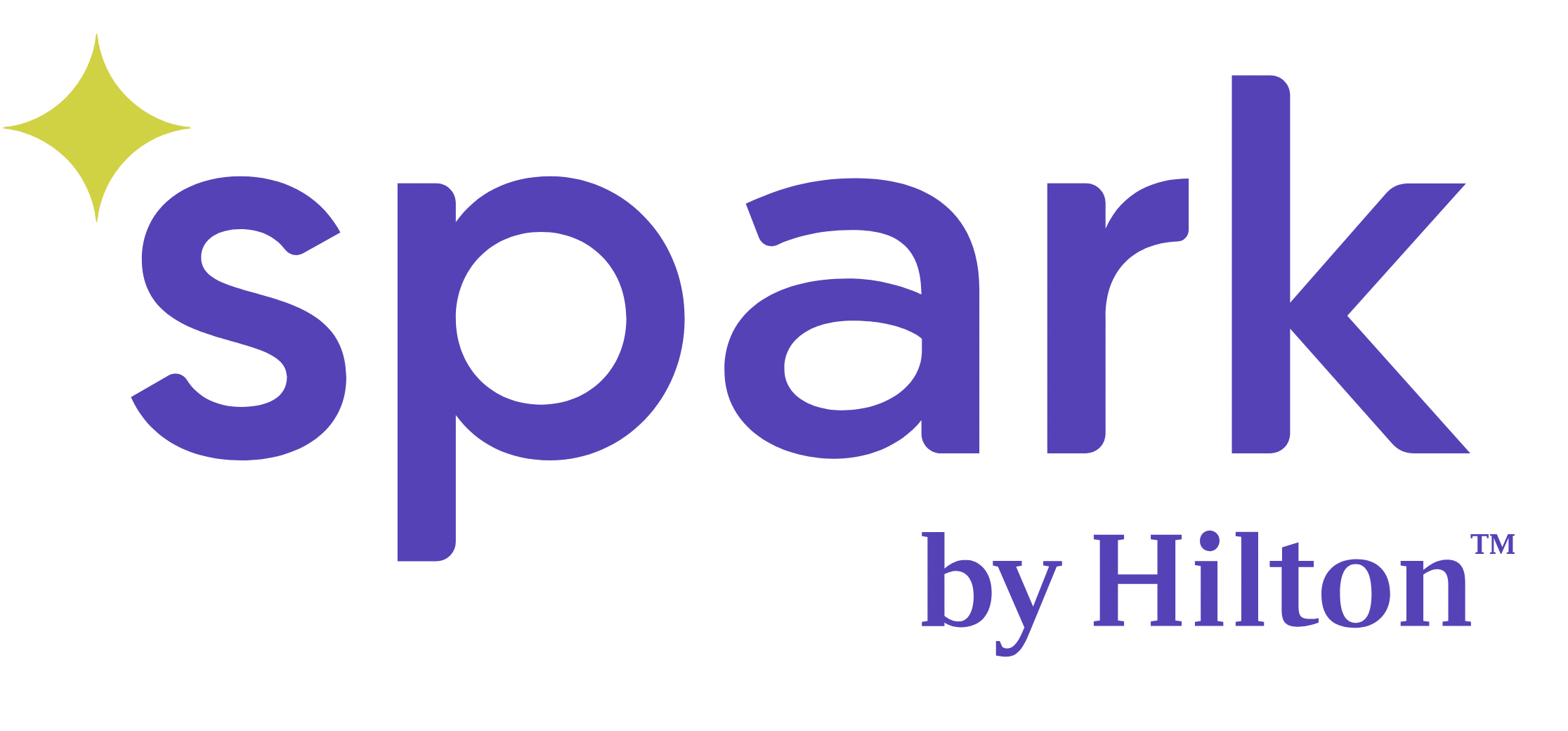Hilton’s Spark Brand Offers A Fast, Flexible Solution For Hotel Owners Looking For A Change

While the pandemic was difficult for many businesses, few were hit as hard as hotels.
During the first few years of the pandemic, hotels nationwide experienced an 85% drop in gross operating profit and a 103% decline in net operating income, resulting in estimated values declining by as much as 35%. But while some operators saw these numbers as a sign to pull back on the operations, Hilton saw an opportunity to reach a new customer base.
“If you look at Hilton's history and its footprint, it’s a company that’s backbone is designed on new-build hotels,” said Alissa Klees, brand leader of Spark by Hilton. “We saw an opportunity to create a conversion brand that’s built for speed and consistency and to serve value-minded travelers who are looking to spend their dollars a little differently.”
With these goals in mind, Hilton Hotels created Spark, its conversion-only hotel brand. Spark takes existing hotels and transforms them into budget-friendly spaces that are consistent in design, comfort and quality from city to city, Klees said.
Often, these existing hotels are coming to the end of their franchise agreement with one of Hilton’s competitors. Through this new offering, those operators will have the opportunity to become a part of the Hilton brand.
“From an investment perspective, this is a great opportunity for owners to upcycle an existing building, breathe fresh new life into it and give them a new way to invest in the Hilton system from a franchisee perspective,” she said.

Since launching its first hotel in September 2023, Spark has opened 31 additional hotels across the country, and the brand is hoping to open its 100th location by the end of this year. Hilton has learned even more about the architecture and design of hotels since starting on this journey, Klees said. The goal of Spark was to have every hotel and room look the same to maintain consistency, but the team quickly learned that when renovating existing hotels, it is impossible to embrace a one-size-fits-all approach.
Instead, the company had to figure out how to make its vision fit into different sizes and shapes. It did this by having members of the team spend 120 nights in conversion candidates and by surveying both Hilton guests and guests of its competitors to understand what they are looking for from this type of hotel.
“We found that this particular space is riddled with inconsistencies,” Klees said. “Travelers felt that they weren’t getting value for their dollar, because they may have had an exceptional stay at a hotel in Charlotte, North Carolina, and then a very different experience when they stayed at the same brand of hotel in Elmhurst, Illinois.”
Delivering this type of consistent, high-quality stay at every Spark hotel regardless of where it is located is what sets the brand apart from the rest, she said. While the exteriors may, naturally, look different because they are renovating different hotels, the foundational experience guests are getting in terms of the quality of the product is going to be consistent from Spark to Spark.
Along with the speed-to-market benefits, converting an existing hotel into a Spark presents a more sustainable choice for owners. Renovation projects generally require fewer materials and generate less waste than new construction, making it an attractive option for developers interested in reducing their carbon footprint. Klees said Hilton has always been committed to “meaningful travel,” with a focus on reducing waste. She said Spark, with its focus on upcycling exciting hotels, is a great addition to that goal.

A typical Spark hotel is between 85 to 100 rooms, and while Hilton has been primarily focused on opening these hotels in suburban areas, it is also looking at locations in Chicago, New York and other urban areas in the U.S. and across the globe. Hilton recently announced the brand’s expansion into the Europe, Middle East and Africa region with the opening of Spark by Hilton London Romford, and it expects to open more hotels across the region this year. Klees anticipates locations across Brazil and Mexico to open soon, as well, solidifying a fast-track for global expansion.
Immense interest from hotel owners has been a major driving factor in Spark’s rise, Klees said.
“Owners see this as an opportunity to get into the Hilton system to get the premiums that Hilton can produce out of their assets,” she said. “That desire is creating the appetite to speed through the conversion process, and we've created a streamlined way to do that.”
Hilton has met with all the owners since their new, converted Spark hotels have opened and they have all been very excited about the results, Klees said. Most were surprised by how quickly renovations were completed, she added.
She mentioned one owner in particular who had owned his hotel for 25 years and converted it to a Spark three months ago. He recently emailed Klees to let her know he was about to experience his first sold-out night and most profitable day in those 25 years.
“Stories like that drive us and make us feel proud about what we've done and confident that the future is bright for this brand,” she said.
This article was produced in collaboration between Spark by Hilton and Studio B. Bisnow news staff was not involved in the production of this content.
Studio B is Bisnow’s in-house content and design studio. To learn more about how Studio B can help your team, reach out to studio@bisnow.com.

